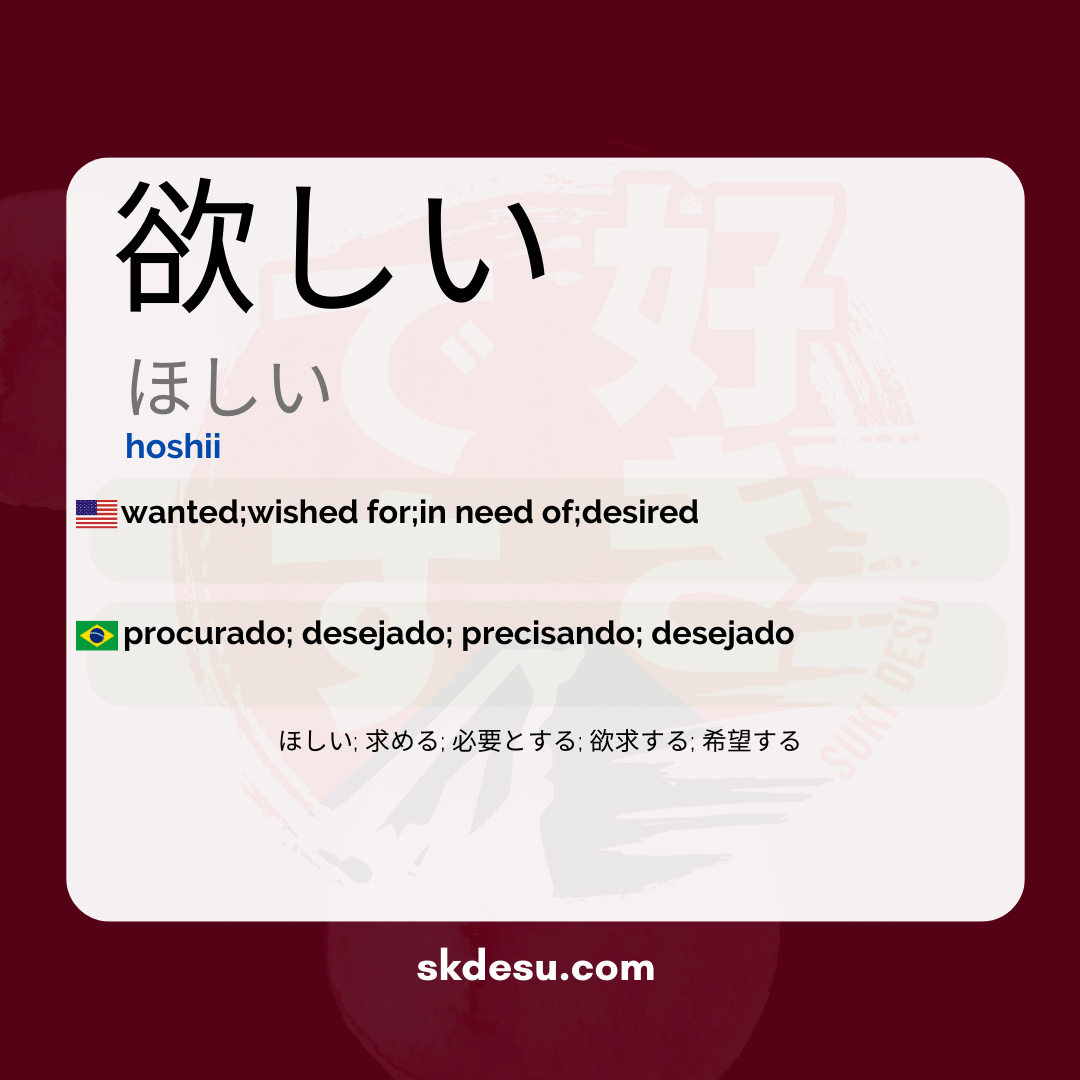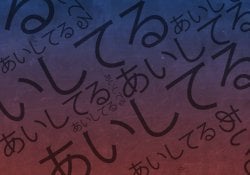In today's article, I present a selection of questions and common expressions used in everyday Japanese. These brief expressions can be used to ask different types of questions, so we will explore their multiple translations and meanings.
Índice de Conteúdo
Hontou? 「本当」
The expression "本当?" (Hontou?) is used in Japanese to express surprise or disbelief about something that was said or happened. It can be translated as "Is it true?" or "Really?". This question is commonly used in informal conversations between friends, colleagues, or family members when someone is surprised by new or unexpected information.
本当? Hontou?
- Seriously?
- Are you sure?
- Are you sure about this?
- Are you sure?
- And even?

Nanikore「なにこれ」
The phrases "なにこれ" (Nanikore) and "これなに" (Korenani) are used in Japanese to express astonishment, perplexity, or confusion in the face of something that was not understood or is considered strange, unusual, or surprising. Literally, "なにこれ" means "What is this?" and "これなに" means "This is what?", but in practice, both are used similarly to express surprise or curiosity about something that caught the speaker's attention.
These questions are commonly used in informal situations among friends, colleagues, or family members, and can be accompanied by specific gestures or intonations to emphasize surprise or confusion.
何これ Nanikore これ何?Korenani
- What is this?
- What is that?
- What is?
- This here, what is it?
- what is this?
Nanishiteruno 「何してるの」
The questions "何してるの?" (Nanishiteruno?), "何するの?" (Nanisuruno?), "何をしていますか?" (Naniwo shiteimasuka?), and "何してんの?" (Nani shitenno?) are all used to inquire about the activities, future plans, or actions of the person you are talking to. They differ in terms of formality and context of use:
- "What are you doing?" is informal and used among friends or family members to find out what the person is currently doing.
- "What are you doing?" is informal and inquires about the person's future plans or immediate activities.
- "What are you doing?" is formal and shows respect when asking what the person is doing in the present moment, suitable for work environments or formal situations.
- "何してんの?" is informal and abbreviated, common among friends or close people to find out what the person is doing at the present moment.
These questions are used according to the formality level of the situation and the degree of closeness to the person you are communicating with in Japanese.
何してるの?nanishiteruno? 何するの?nanisuruno? 何をしていますか?naniwo shiteimasuka? 何してんの?Nani shitenno?
- What are you doing?
- What are you doing?
- What will we do?
- What do you do?
- What are you doing?
- What are you doing?
The article is still halfway through, but we recommend also reading:
Nani ni tsukau no 「何に使うの」
The phrase "何に使うの" (Nani ni tsukau no) in Japanese can be translated as "What are you going to use this for?" or "What will this be used for?". This expression is used to inquire about the purpose or the goal of something, questioning how an object or resource will be used in a certain situation.
It is common to hear this question when someone shows a new or unknown object, or when discussing the use of something specific in a practical context.
何に使うの Nani ni tsukau no
- For what?
- For what purpose?
- What are you going to use?
Nan’notameni 「何のために 」
The phrase "何のために" (Nan'notameni) in Japanese can be translated as "For what?" or "For what purpose?". This expression is used to inquire about the purpose or reason for something, questioning the rationale or motive behind a specific action, decision, or situation.
For example, you can use this expression to ask why someone is doing something or what is the goal behind a certain action.
何のために Nan'notameni
- What's the point?
- For what purpose?
- For what?
- For what purpose?
- For what purpose?
- For what?
nannohanashi 「何の話」
The expression "何の話" (Nannohanashi) in Japanese can be translated as "What are we talking about?" or "What are we discussing?". This phrase is used to clarify the theme or topic of the conversation, indicating interest in knowing about the subject being discussed. It is common to use it when you want to better understand the context of the conversation or when you want to focus on a specific subject.
何の話? nannohanashi?
- What are you talking about?
- What are you talking about?
- What are you talking about?
- What are you talking about?
Dakara nani 「だから何」
This expression in Japanese is translated as "So what?" It is a direct way to express indifference or lack of interest in relation to something that was mentioned before. It can be used in informal contexts among friends or in situations where one wants to demonstrate a relaxed attitude.
だから何? dakara nani?
- And?
- And now?
- And then?
- Where do you want to get?
Nanda kore 「何だこれ?」
"Nanda kore" (or "Nan da kore") is an expression that means "What is this?" or "What is that?" in Japanese. It is used when you want to ask about a specific object that is nearby or that was mentioned in the conversation. This question is common in situations where something arouses curiosity or when you do not recognize something and want an explanation of what it is.
何だこれ? Nanda kore?
- What is that?
- What is this?
- What is that?
Nani no youda 「何の用だ」
"Nani no youda" is an expression that can be translated as "What do you want?" or "What is your goal?". It is used to question someone's intention or purpose regarding something specific. It can be used in various contexts, from informal conversations to more formal situations, depending on the tone and intonation used.
何の用だ nani no youda?
- What you want?
- What do you want?
- What do you want?
- What do you want?
- What do you want?
- What do you want?
- What do you want?
- What do you want?
Nandatte 「何だって。」
"Nandatte" is an informal Japanese expression that can be translated as "Well, what?" or "What did you say?". It is used in situations when you did not understand something that was said or when you want a clearer explanation about a subject. It can express surprise, curiosity, or the need for clarification.
何だって。
nandatte?
- Well what?
- What did you say?
- forgive-me?
Nani ga shitai 「何がしたい?」
"Nani ga shitai" is an expression that means "What do you want to do?" in Japanese. It is used to inquire about the desires, plans, or intentions of someone regarding specific activities. It can be used in informal and formal contexts to ask about the interests or goals of the person.
何がしたい? Nani ga shitai?
- What do you want to do?
- What do you want to do?
- What would you like to do?
- What do you want to do?
Nani ka atta 「何0かあった0?」
"Nani ka atta" is a Japanese expression that can be translated as "Did something happen?" or "Is there any news?" It is used to ask if something new has happened or to find out if there is any relevant or interesting information to be shared. This expression is common in everyday conversations to check if there are any news or recent events to be discussed.
何かあった? Nani ka atta?
- News?
- Something new?
- Any news?
- Something new?
- Did something happen?
Nani kangae teru no 「何考えてるの」
"Nani kangae teru no" is a Japanese expression that means "What are you thinking?" or "In what are you thinking?". It is used to inquire about someone's thoughts, reflections, or ideas. It can be used in various contexts to better understand what the person is pondering or considering.
何考えてるの Nani kangae teru no
- What is on your mind?
- What are you thinking about?
- What are you thinking?
- What are you thinking?
- What are you thinking about?
Nani matteru no 「何待ってるの?」
"Nani matteru no" is a Japanese expression that can be translated as "What are you waiting for?" or "For what are you waiting?". It is used to ask what someone is waiting for or expecting to happen in a certain situation. It can be used in different contexts to inquire about expectations or deadlines.
何待ってるの? Nani matteru no?
- What are you waiting for?
- What do you expect?
- What are you waiting for?
Nani ga hoshī no 「何が欲しいの」
This Japanese expression, "何が欲しいの" (Nani ga hoshī no?), is used to ask "What do you want?" or "What do you desire?". It is a direct way to inquire about someone's desires or needs regarding something specific. It can be used in various contexts to question what the person is interested in obtaining or achieving. The use of this expression shows interest in understanding the preferences and aspirations of the other person.
何が欲しいの Nani ga hoshī no?
- What you want
- What do you want?
- What do you want?
- What do you want?
- What do you want?

Conclusion
I hope you have enjoyed this brief article about some common questions in Japanese. Did you notice that most of the questions end with the particle 「の」? This is an important characteristic of the Japanese language that helps indicate possession or connection between elements in the sentence. It is interesting to note that some of these questions can be formulated differently, such as using the form 「ですか」 at the end of the sentence or changing the position of 「何」 to the end, demonstrating the flexibility and versatility of the structure of the Japanese language.
If you have more questions or want to learn more about the Japanese language, do not hesitate to explore other topics or seek more information. Thank you for reading!







